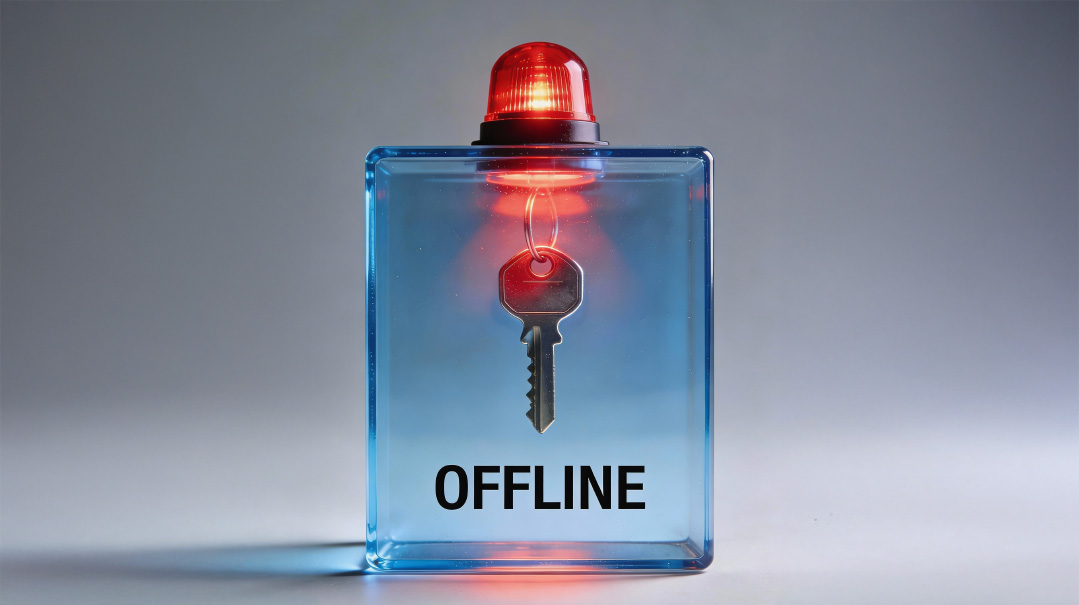That Camping Spirit


Rabbi Zuckman
The reason your camp succeeded is because of my hard work. Why shouldn’t I benefit?
Heshy
If you do things your way, the camp will close down. I have to choose the guy who’s best for the job.
Rabbi Zuckman
"R
abbi, Rabbi Zuckman!” Clap, clap, stomp, stomp. “Rabbi Rabbi Zuckman!”
I waved to the cheering kids from my spot at the head of the carpool line. A maroon Sienna pulled up.
“Two Markowitzes, going once!” I called. “Two Markowitzes, going twice, two Markowitzes, do I hear two Markowitzes?” Gavi and Benny Markowitz came scrambling down the bleachers, high-fiving me as they passed.
“Bye, Rabbi Zuckman!”
“Bye, Rabbi Zook!”
“Get lots of rest tonight,” I yelled after them. “The staff-campers basketball tournament is tomorrow! We’re gonna beat you!” Their laughter floated back to me as they climbed into the van. I turned to the silver Camry that was pulling up. “Bergman carpool, going once!”
Finally there were only two carpools left — Kranzler and Hallman (always the same two). I stretched out on the bottom bench. “Why do seagulls live near the sea? Because if they lived near the bay they would be bagels!” They cracked up. Nothing like fifth-grade humor.
“Hey, Rabbi Zuckman?” Yehuda Kranzler’s eyes were dancing. “Is it true that you’re breaking out color war at the end of the basketball tournament?”
“Hey, that’s a good idea!”
“Is that a yes?” demanded the older Hallman kid. He was in sixth and loved to be in the loop.
“When you get to be the camp director, you’ll know everything,” I said mysteriously.
“It’s a yes!” Binny Hallman did a little dance. “How you gonna do it? Tell us!”
I waved them into the blue Odyssey. “See you tomorrow, boys!”
When the Kranzlers were also gone and the parking lot was empty, I picked up some trash and went inside to the office. We weren’t breaking out color war, but we were having a barbecue and kumzitz after the game. I scrolled through my contacts looking for Rabinowitz’s number; he was supposed to come with his guitar.
Heshy was in the office of course, regally ensconced in the leather swivel chair, cool as a cucumber in the AC, tapping away intently at his computer.
The first time I met Heshy, he said he liked the fact that I had a business head. “There’s a lot of growth here for the right guy,” he’d asserted. His gray eyes were dark and intent.
My business head made me hesitant, though. Camp Ohr Kayitz was weak, just 75 campers in five years. What was the plan for growth?
Heshy pointed at me. “You’re the plan,” he said persuasively. “You’re the expert who’s going to double enrollment in one year.”
A great salesman. I smiled politely.
“So what do you think?” he asked.
I hesitated. “I need to think about it. I have another offer.”
“Of course. And some other places are more established. But here you’ll have the opportunity to get on board at the ground level and ride with us to the top.” His lowered his voice confidingly. “You know, I can’t spend so much time overseeing the camp anymore. I have my nursing homes to manage, and we’re branching out into retirement communities. I need a guy I can trust so I can hand over the reins. You know kids, and you seem to have a knack for business. As the camp grows you’ll grow, too. Think about it.”
Heshy was right — after I joined Ohr Kayitz, we doubled in size. Not the next year, but the year after that. I lived and breathed that camp. After five years we were at 500. Three years later we maxed out at 850. (My salary grew too. Much more modestly.)
And here was Heshy, still in the office ten years later. That long-ago recruiting speech about room for growth and moving up had been pretty, but when it came to down to it, he had never really been able to let go. It’s a type, I realized — the type that needs to manage every detail himself . After a few years I had just accepted the fact that he wasn’t going to be able to “hand over the reins.” With time we staked out our territories: Heshy does the paperwork, insurance, suppliers; I make the kids (and parents) happy. I keep enrollment up, he keeps costs down. It works. Most of the time.
“Hey, Moish,” I said as Rabinowitz picked up. “It’s Zuckman from Camp Ohr Kayitz. Just wanted to confirm that we’re on for tomorrow night. Yeah, seven-thirty. It’s night activity.” It was a good thing I had called to remind him. “No, we can’t do it earlier, the singing is supposed to start when it’s getting dark.” That’s the thing when you hire these young-bochurim-type guys, they’re a little too chilled.
Heshy turned toward me. “How much are we paying that guy?”
“Forty.”
“Can’t the kids sing without a guitar?”
“Technically, I guess. But it’s not the same, the guitar gets everyone into it. He’s a newbie,” I added. “The more experienced guys take 250 for 90 minutes.” We had had this conversation in a million different iterations over the last ten years.
“Maybe we could get a CD instead and just hook it up to the sound system.”
That would save us 25 dollars. Seriously, 25 dollars.
I played his game. “A CD also costs money.”
“Yeah, but we could reuse it every year.”
This is why Heshy needs me: because he thinks you can replay the same prerecorded kumzitz every summer. I still think Heshy was right about my knack for business. Thing is, my knack for business doesn’t seem to match his knack for business. Sometimes I think it’s just that he’s inside with his spreadsheets too much; maybe if he were more engaged with the life of the camp he would understand.
“Heshy, I booked him already.”
Heshy subsided.
***
The best part of the staff vs. campers basketball game is the turnabout. Everyone thinks the staff has the advantage: older, taller, better players. But they’ve also never played as a team and some of them are no longer teenagers and some of them have kids who are no longer teenagers and let’s just say, that’s not an advantage. Meanwhile the kids have been training for this game all summer, they’re lighter on their feet, and they want to win more than anything else.
Truth is, it’s not only the campers who want the campers to win — the staff also wants the campers to win.
I’m a rebbi. I work 24 hours a day, all year. Why do I take another 24-hour-a-day job for the few short weeks I’m off each summer? Because I need the money, of course. Unfortunately, the money is not that great. But this is great: this moment, when the ball goes through the basket at the buzzer and the entire camp descends screaming onto the court for one giant group hug.
Still, I think I’ve earned a raise.
That’s what I’m thinking as I’m walking to my car, when it’s dark and quiet and the last kids have finally left and I’ve put away the basketballs that the maintenance kids forgot. There’s only one other car in the dirt lot — Heshy’s Lexus. It’s parked right under the floodlight and he’s leaning back against it and scrolling through his phone. When he sees me he slips the phone back onto his belt and waves me over.
“Great game,” he says.
“Thanks.”
“Who won?”
“The kids.”
“How was the guitar?”
“The highlight of the summer.” I didn’t tell him that the kumzitz guy had been 30 minutes late and you get what you pay for. (I’d held a camp-wide game of Simple Simon Says while we waited, it was hilarious, the kids are never going to forget it.)
Heshy looked at me seriously. “Rabbi Zuckman, we need to talk.”
I leaned against the floodlight. In the morning I’d have to return it to my brother-in-law’s cousin, but for now it was in the right place.
“We’ve been doing pretty well together these few years.”
I nodded. Storytime under the stars, it was almost as good as a kumzitz. I didn’t say it. This whole thing unnerved me, it wasn’t Heshy’s type; ruach, bonding, nostalgia was my department.
“But it’s time for a change. I need to pull back a little. A lot.”
He looked like he meant it this time. Heshy was 60 already. He’d been a workaholic for 40 years. Why was he still babysitting the camp? I knew enough by now to take over most of what he’d been doing. We could hire another guy as assistant director or head counselor or whatever we’d call it. It had taken longer than I’d thought, but here was the opportunity he’d talked about all those years ago.
“Okay,” I said to Heshy. “So I guess we’re going to need to hire someone for next year?”
He nodded. “Yes, but I thought it would be a good idea to hire them now. That way they could spend the last couple weeks of camp here, get a feel for the place in real time.”
“Okay,” I said again. The last couple of weeks are so busy, how were we going to hire someone now? Although Weinstein from down the block has a son who might be the type. My hand went automatically to my phone.
“So does tomorrow at four work for you?”
“Uh… what?”
“Tomorrow, at four. Right after camp. We can show him around and then he can start the next day in the office, maybe shadow you for a bit, too.”
He had hired someone already. Without asking my opinion! I was going to have to work with this guy! I didn’t know if I was more outraged or hurt.
Over a delayed supper, my wife tried to convince me it would be okay. “Heshy will be around less next summer, that’s the whole point. So you’ll train the new guy in yourself. It will be fine. And,” she pointed out, “it will definitely mean a very significant raise.”
***
When I walked into the camp office at 4 p.m. the next day, I did not find Weinstein’s son waiting for me. Nor did I find anyone even remotely similar to Weinstein’s son. The new guy was in a suit and tie, clean-shaven, wearing brand-new, leather-soled shoes. He looked like a businessman.
He looked like Heshy.
“Rabbi Zucker, meet Yitzchak Farber. Yitzchak, this is Rabbi Zucker. He runs the place for us; he made Ohr Kayitz the greatest camp out there.” That was very generous of him. “Zook, I’ve been showing Yitzchak the ropes in here, I know you’ll be a great team.” He really was trying, calling me Zook and everything. “My goal is to teach Yitzchak everything about the camp, especially my end of things, of course, so that next summer Yitzchak will fill my role seamlessly. You won’t even feel the difference.” He beamed.
My eyes slid from Heshy, smiling like a mechutan for the photographer, to Yitzchak. Yitzchak the businessman who would fill Heshy’s role so seamlessly I wouldn’t even feel the difference.
Heshy had not hired an assistant for me. He had hired a boss for me.
My first thought (when rational thought returned) was to leave. I could borrow some money and start my own camp next summer. But then I remembered the non-compete contract I had signed so blithely ten years ago, when I needed the money so badly just to put bread on the table that I couldn’t even dream of ever having the capital to start my own camp.
I guess I could leave anyway, tutor all summer for the next five years until the non-compete runs out. Or I could stay, keep doing what I’ve been doing all these years, just with Yitzchak instead of Heshy. Like Heshy said, it really wouldn’t be all that different.
It feels different though.
It’s like I suddenly see the past ten years in a new light. We weren’t working together; he was using me.
If I could tell Heshy one thing it would be: I made this camp successful. The only reason you got away so cheap on everything is because I went way above and beyond to make up for it, and you benefitted from that. You should make good on your promise that I would have the opportunity to benefit too. How could you do this to me?
Heshy:
It was during Zook’s first summer that he proposed the flashlights. “The park won’t let us have a campfire,” he said, as we planned the overnight at the end of the summer, “but I have a great idea. As we load the buses we hand each kid a flashlight with the Ohr Kayitz logo and their name. Then when it’s time for lights out, we call each kid up by name, say something nice about him, and he puts his flashlight in the center. When we’re done we have a flashlight-bonfire to sing around and a bunch of campers who are ending the summer feeling like a million dollars. They’ll treasure the memory forever and they’ll have the flashlight to remind them!”
The custom-printed flashlights cost $3.99 each.
I tried to explain. “How about a keychain? Or a baseball cap?” I suggested. “Those cost less, and they can also be, uh, treasured.”
Zook shook his head. “It’s not the same.”
“Other camps just do T-shirts.”
“We aren’t other camps!”
That was true — we wanted to differentiate from the competition. I liked how he thought.
I gave Zook a budget of 50 cents per kid, which bought us custom-labeled water bottles. They sang without flashlights, and it was beautiful. I thought so, at least. Zook was disappointed.
I liked that too, though. A guy who cared that much was exactly what would make Ohr Kayitz special. Zook was the man. I would just need to train him a little.
And there were plenty of opportunities for that. Like his second summer with us, when we were placing the order for the barbecue.
“One hundred campers, two hundred hot dogs,” I told Zook.
“Maybe a hundred-fifty,” he said, “and let’s say a hundred burgers.”
“Burgers are triple the price,” I pointed out.
“Not all the kids are going to want one. We can probably get away with just 75, if you’re more comfortable with that.”
“It’s not a matter of what I’m more comfortable with, it’s a matter of economics. Burgers cost a lot more, so franks are a better choice.”
“Okay.” Zook gave in, but I knew he didn’t actually agree. “I was thinking it would be nice to have steaks for the counselors, though. They worked so hard, it can be a gesture of appreciation.”
“Steaks?” Come on, this was going too far! “Zook, this is a day camp.”
“Yeah, but we want it to be the greatest day camp. That means we need to attract the greatest staff, so the kids will have the greatest time and their parents will tell everyone how organized and well-run we are, and about our mature and responsible counselors. And if we show appreciation to our staff, we’ll become the place to work.”
“We pay them,” I pointed out. I really wanted him to learn.
“This is different. Anyway, Heshy, the hike is free. We can pay for the food.”
***
The next year, I tried to talk about the bigger issue, so we wouldn’t have to haggle over every decision. I actually showed it to him on a spreadsheet. “This is the list of campers — we’re at 125 this year. Now, here,” I indicated the list of sums, “is the tuition per camper, with the total at the bottom. So that’s our income.” I flipped to the next tab. “This lists our expenses.” I let it scroll to the bottom: rent, insurance, staff salaries, vehicles, trips, supplies, food, pool rental, everything. “That’s total. At the end of the summer, we subtract this,” I pointed to the cell marked Total Expenses, “from this,” I pointed to Total Income, “and that number is our profit.” I threw in a joke to keep things light. “This is a for-profit organization, you know.”
Zook smoothed his beard. “I get it,” he said. “But there’s one thing I want to point out. When I came, we were at 75. Now we’re at 125.” He looked like he wanted to say something else but then he went on. “Do we want to stay at 125? We’re good there?”
“Of course not, we want to grow.”
“Right. So let’s say,” he squinted at the screen, “let’s say we switch swimming to every other day. Look what that would do for us. It would cut the lifeguard salaries and pool rental costs in half.” He looked at me. “We would never do that, right? Because no one is going to come to a camp that only goes swimming two or three times a week.”
“It’s a necessary expense,” I agreed. “Like the rent and the counselors.”
“Right.” His voice took on a sing-song quality, like when he tells the kids a story to keep them busy when there’s unexpected downtime. “But if we want to grow, we need to think big. You give each kid a soda can at the banquet, it’s 25 cents off their tuition and it pumps them up about the whole experience. Instead of looking at the 25 cents, look at the 50 new campers you’ll enroll next year.”
I couldn’t shake his belief. What Zuckman doesn’t understand is that if you want to have money, don’t spend it. Or at least, not more than you have to. First rule of business.
Eventually I decided that it’s okay if he doesn’t understand that. He’s running the camp, attracting campers, managing the staff, making a matzav. It’s an important role and he does it well. I had hoped I wouldn’t need to be so hands-on anymore, but it’s okay if I still need to manage the business end. It’s working.
But if I leave, it’s going to stop working.
My kids don’t understand why I don’t just sell the camp. They laugh: This is Dad’s pet project, who knew he was the type to be so attached. But they don’t remember the early days, when I was working 80 hours a week and we lived in a rented apartment; their childhood memories all feature a big house with a father who was “in real estate” and “had investments.” Well, the camp was one of those investments — and you don’t kill the goose that lays golden eggs, even if you have larger geese. Another rule of business.
I met Yitzchak Farber at the Tomchei Tzedakah dinner (this year they called my slot the “Kesser Shem Tov” award). His handshake caught my attention. It was firm, his gaze was direct, he wasn’t flustered by the 40 year age gap.
“Mr. Gellman, shalom aleichem, Yitzchak Farber.” He indicated his grandfather, R’ Yochanan Farber, seated nearby (Kesser Torah). “Mazel tov, it’s a pleasure to meet you.”
“Thank you, aleichem shalom. Do you live around here?”
“Yes, just moved here.”
“And what do you do?”
He looked faintly embarrassed. “Uh, looking around. Uh, right now I’m with Myrtle Properties, we’ll see…” Then his face cleared, he leaned back and said confidently, “I’m with Myrtle now but I’m open to other opportunities. I’ve always wanted to go into business, that’s where my strengths lie.”
I liked him. He reminded me of myself at that age. He was bright and driven, but he needed resources, he needed experience. He needed an opportunity.
When I told him about the camp he looked disappointed. “I was never really a camp guy,” he said.
“I already have a ‘camp guy,’” I assured him. “What I need is someone to manage the business end so I can pull back.”
The idea of stepping into the shoes of a successful businessman was a little more appealing. “You were there all these years?” he asked, puzzled.
I raised an eyebrow at him. “You want your business to grow, you have to be there. First rule of business. Don’t you forget it.”
He grinned. “Yes, sir.”
The second rule of business is to hire the best people. I had gotten that good feeling when I met Zook, and I had been right.
I had that feeling now, with Farber. He was the right guy. He would get it, and he would give it his all.
I met him formally at my home office a few days later. When I walked him out I teased him gently about the beat-up Corolla. “A small car for a man with such big dreams,” I said.
He smiled, but without shame. “It does the job,” he said.
That clinched it.
***
Zook’s shock surprised me. What had he thought? That I would put him in charge of the whole operation? He was good at what he did. But he wasn’t good at what I did.
I thought it over when they both left. Could I put Zook in charge instead of Yitzchak? What would that look like?
There would be expensive promos and burgers at the barbecues. And steak for the staff.
Discounts for kids who “really needed it.” He would probably waive some tuitions entirely.
How many years would it take for him to hire real rebbeim for the learning hours in the morning? This had always been a point of contention; he wanted real rebbeim to make learning time serious. I didn’t think it was necessary — we were already paying for nice prizes for the incentive program.
Fifty pairs of inline skates, for rainy days. I could hear his voice: “an investment.”
All kinds of supplies and materials for color war banners and shtick.
Birthday cakes on a camper’s birthday (“they really miss out, those summer birthdays — the other kids get a fuss during school every year”).
Maybe for the staff birthdays too? As a token of appreciation.
How long before we stopped turning a profit?
How long before we stopped breaking even?
Zook doesn’t like it, and I feel bad for him. Still, business is business.
If I could tell Zook one thing it would be: I know you want to run the greatest camp possible. But if you do things your way, there won’t be any camp. I have to choose the guy who is best for the job.
(Originally featured in Mishpacha, Issue 715)
Oops! We could not locate your form.













